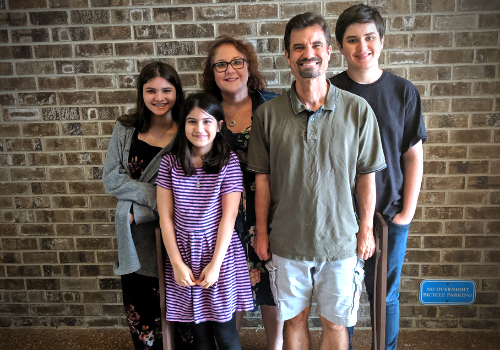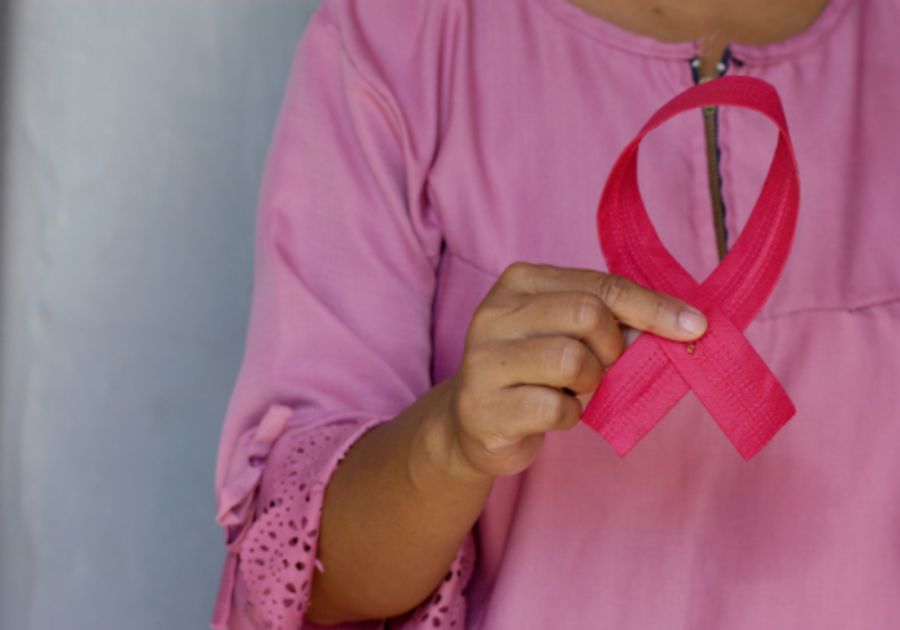October is Breast Cancer Awareness Month, which means something different to me this year since I found out in February I have the gene BRCA 2+. That gene mutation means I have a higher chance of developing breast and ovarian cancer.
Since my grandmother died from ovarian cancer and I already had a partial hysterectomy, the decision to remove my ovaries seemed relatively easy.
But when I heard from a breast specialist that she thought the best course of action was to also remove my breasts...?
The recommendation floored me.
The room began to spin, and I became acutely aware of my breasts. The doctor didn’t skip a beat, telling me they could construct new breasts from my extra skin before I even left the operating room.
 The author and her family. The author and her family. |
After a second opinion, I've decided to continue to monitor my breast health for the time being. I've had two MRIs that haven't shown any signs of cancer. Doctors are monitoring my condition, but for now, I remain lucky. After all, more than 42,000 women will die from breast cancer in 2020.
I found out after being diagnosed with the BRCA 2+ mutation that I am one in 40 women who carry the gene. If you have a history of breast cancer in your family or simply want to get tested, you can make an in-person appointment with a licensed genetic counselor.
All women -- whether they are considered high-risk or not — should take steps to minimize their chances of getting breast cancer.
Here are five things you can do to help maintain breast health:
1. Get an annual mammogram
If you don't already have an appointment, make it now. Then reach out to every woman you know and remind them, too.
2. Perform monthly self-exams to check for lumps
If you find something, don't panic, but call your doctor as soon as possible for a consultation.
3. Exercise regularly for a healthy body
Regular moderate-duration and high-duration aerobic activity can help reduce the risk of developing breast cancer, according to a study in this medical journal.
4. Eat a well-rounded diet of whole foods
Some researchers have suggested dietary factors could be responsible for as many as 40 percent of cancers. A story from "Medical News Today" said studies have shown foods such as dark green, leafy vegetables, fruits, beans, fish, and eggs might help prevent breast cancer.
5. Reduce stress
Long-term or chronic stress can weaken your immune system, leaving you prone to diseases like cancer, Anil K. Sood, M.D., professor of Gynecologic Oncology and Reproductive Medicine at MD Anderson, told the University of Texas MD Anderson Center.
To read more about breast cancer, visit the National Breast Cancer Foundation.
Diana Cole is the publisher of Macaroni Kid Sandy Springs-Dunwoody, Ga.


